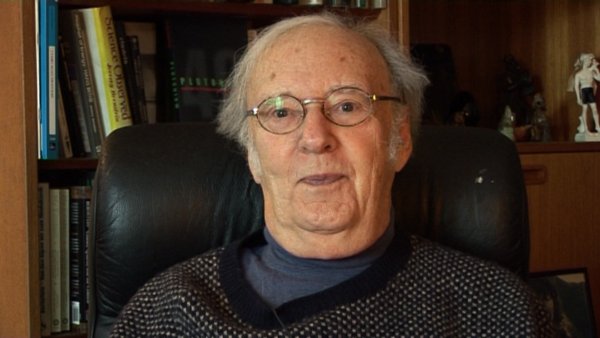NEXT STORY

No interest at all in maths or physics
RELATED STORIES

NEXT STORY

No interest at all in maths or physics
RELATED STORIES


|
Views | Duration | |
|---|---|---|---|
| 1. My father: The best fed person in his family | 790 | 01:24 | |
| 2. How my mother got her man | 498 | 01:07 | |
| 3. 'I had no idea if I was smart or not' | 1 | 583 | 01:40 |
| 4. Anti-Semitism in the USA | 601 | 01:08 | |
| 5. Moving to the Golden Ghetto | 434 | 01:00 | |
| 6. 'Public schools were dangerous' | 429 | 01:16 | |
| 7. Getting into sport | 350 | 00:45 | |
| 8. My interest in writing | 366 | 01:58 | |
| 9. No interest at all in maths or physics | 602 | 00:49 | |
| 10. My IQ | 1 | 948 | 01:19 |

I was interested in writing, although I didn't exactly… I wouldn't have put it that way, but I was interested in writing. And I was interested in celebrated people. It's always been, I think, a part of my character. I think it's a character defect. I think it comes from sort of wanting to be somebody else. I think I've always wanted to be somebody else. I'm not quite sure who but somebody. So I was interested in celebrated people and I wrote a column in our high school newspaper called Seeing Stars, in which I interviewed a number of the celebrated people of the day. I interviewed Duke Ellington, Tommy Dorsey, the band leader, Henry Morgan, who was a comedian. I interviewed him in his hotel room, and a woman came out of the room, and he said, 'I want to introduce you to my cousin.' So I said, 'Yes, glad to meet you.' And then he had a table on which he had a lot of intellectually serious books. And I said, seriously, I wasn't trying to be funny, I said, 'Do you actually read these books?' And he said, 'No I don't, but the table is filled with helium, and I don't have the books on it, it flies up and sticks to the ceiling'. And I also interviewed Edgar Bergen and a number of celebrated people of the day. And the strange thing about it is that when… I don't have too many of these columns, but the few that I have left are very much in The New Yorker style Talk of The Town. And I don't know where I got it from, because I'm sure I wasn't reading The New Yorker, but it was absolutely in that style: yesterday we, yesterday we did, the whole editorial we… that the Talk of The Town used to use. So when later on, I began writing for The New Yorker and I started writing Talk of The Town, it was just natural for me. It was my… it was an obvious voice, because I had done it when I was in high school.
Born in 1929, Jeremy Bernstein is an American physicist, educator and writer known for the clarity of his writing for the lay reader on the major issues of modern physics. After graduating from Harvard University, Bernstein worked at Harvard and at the Institute of Advanced Studies at Princeton. In 1962 he became an Associate Professor of Physics at New York University, and later a Professor of Physics at Stevens Institute of Technology in Hoboken, a position he continues to hold. He was also on the staff of The New Yorker magazine.
Title: My interest in writing
Listeners: Christopher Sykes
Christopher Sykes is an independent documentary producer who has made a number of films about science and scientists for BBC TV, Channel Four, and PBS.
Tags: New Yorker, Talk of the Town, Duke Ellington, Tommy Dorsey, Edgar Bergen
Duration: 1 minute, 59 seconds
Date story recorded: 15th June 2011
Date story went live: 17 August 2011